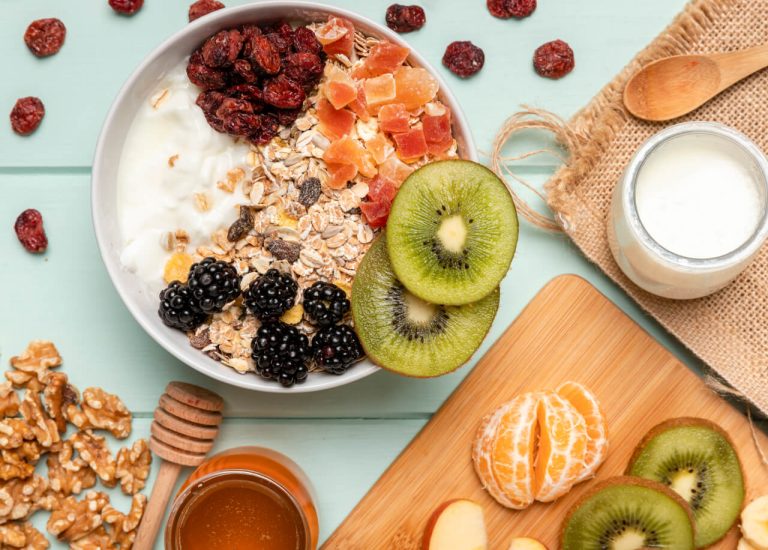Nutritional Supplementation for Enhanced Athletic Performance

Throughout my life I have experimented with a wide array of nutritional supplements. While most had minimal impact, a few demonstrated noticeable enhancements in my performance and physique when utilized correctly (though effective supplements often run the risk of misuse). This concise blog offers general advice on supplements (specifically for athletes and weightlifters) and highlights several that have been substantiated by extensive research to deliver their claimed benefits. Although other supplements have emerged in the market with potential benefits, their efficacy or lack thereof hasn’t been sufficiently validated in scientific literature to justify their recommendation.
Nutritional supplements play a vital role in supporting athletic performance and aiding in muscle recovery, particularly in the realm of sports and weightlifting. Athletes and fitness enthusiasts often seek ways to optimize their training regimen, and proper supplementation can provide an edge in achieving their goals. In this comprehensive guide, we delve into the world of nutritional supplements, exploring their benefits, types, and recommendations for sports and weightlifting.
Understanding Nutritional Supplements
Nutritional supplements encompass a wide range of products designed to complement a balanced diet and support specific health and fitness goals. These supplements come in various forms, including pills, powders, liquids, and bars, and contain essential nutrients such as vitamins, minerals, amino acids, and herbal extracts.
For athletes and weightlifters, supplements serve multiple purposes, including:
- Enhancing Performance: Certain supplements can improve endurance, strength, and power output during workouts or competitions.
- Supporting Recovery: Nutritional supplements aid in muscle repair and recovery post-exercise, reducing fatigue and promoting faster healing.
- Filling Nutritional Gaps: Intense training regimes may increase the body’s demand for specific nutrients, which can be met through supplementation.
- Promoting Overall Health: Some supplements offer general health benefits, such as immune support and inflammation reduction, which are crucial for athletes’ well-being.
Evidence Based Nutritional Supplements for Sports and Weightlifting
- Protein Supplements: Protein is essential for muscle repair and growth, making protein supplements a staple for athletes and weightlifters. Whey protein, casein protein, and plant-based protein powders are popular choices, offering quick absorption and a complete amino acid profile. Whey protein 20-40g per dose.
- Creatine: Creatine is one of the most extensively researched supplements, known for its ability to enhance strength, power, and muscle mass. It works by increasing phosphocreatine levels in the muscles, aiding in ATP regeneration during high-intensity exercises. Creatinine monohydrate 5g daily or loading phase (5g x 4 for 5-7 days) then 5g daily.
- Beta-Alanine: Beta-alanine is a non-essential amino acid that combines with histidine to form carnosine, a compound responsible for buffering acid in muscles during high-intensity exercise. By increasing intramuscular carnosine levels, beta-alanine supplementation delays fatigue and improves performance in activities lasting 1-4 minutes. Beta-alanine 65mg/kg/day (divide doses to reduce symptoms of paresthesia).
- Caffeine: Caffeine is a well-known stimulant that can enhance focus, alertness, and exercise performance. It works by blocking adenosine receptors in the brain, leading to increased adrenaline production and improved endurance during prolonged workouts. Caffeine 3 mg/kg or up to 5-6 mg/kg (caution at this dose).
- Nitric Oxide Boosters: Nitric oxide (NO) boosters, such as arginine and citrulline, enhance blood flow and vasodilation, leading to improved nutrient delivery and oxygenation to muscles during exercise. This can result in increased endurance, muscle pump, and overall performance. Dietary nitrates occur naturally in green leafy vegetables such as spinach and lettuce as well as fennel, rocket, radishes, Chinese cabbage, and parsley. Dietary nitrates 310-560mg, 2-3 hours prior to training.
- Sodium Bicarbonate: Adding sodium bicarbonate supplements, typically ranging from 0.2 to 0.5 grams per kilogram, enhances performance in activities requiring muscular endurance such as various combat sports like boxing, judo, karate, taekwondo, and wrestling, as well as in high-intensity exercises like cycling, running, swimming, and rowing. The performance benefits of sodium bicarbonate are primarily observed in exercises of high intensity lasting between 30 seconds and 12 minutes. Sodium bicarbonate 0.2-0.4g/kg, 60-150 min. before training (divide doses if GI problems occur).
Recommendations for Effective Supplementation
While nutritional supplements can offer significant benefits to athletes and weightlifters, it’s essential to approach supplementation strategically to maximize their effectiveness. Here are some recommendations for incorporating supplements into your training regimen:
- Consult with a Healthcare Professional: Before starting any new supplement regimen, consult with a qualified healthcare professional, such as a registered dietitian or sports nutritionist. They can assess your individual needs, goals, and health status to recommend appropriate supplements and dosages.
- Focus on Whole Foods First: While supplements can fill nutritional gaps, they should not replace a balanced diet rich in whole foods. Prioritize nutrient-dense foods like lean protein sources, fruits, vegetables, whole grains, and healthy fats to meet your body’s needs.
- Choose Evidence-Based Supplements: Select supplements that have been extensively researched and proven effective through clinical studies. Look for products from reputable brands that adhere to strict quality control standards and third-party testing.
- Pay Attention to Timing and Dosage: Timing and dosage are crucial factors in maximizing the benefits of supplementation. Follow recommended dosages provided by healthcare professionals or product labels and consider timing your supplements around workouts or meals for optimal absorption and utilization.
- Monitor Your Response: Keep track of how your body responds to supplementation, including changes in energy levels, performance, recovery, and overall well-being. Adjust your supplement regimen as needed based on your individual needs and goals.
- Stay Hydrated: Ensure you stay hydrated throughout the day, especially during intense training sessions.
- Be Cautious of Interactions and Side Effects: Some supplements may interact with medications or have potential side effects, especially when taken in high doses or combined with other substances. Be aware of any potential interactions or adverse reactions and discontinue use if you experience any negative effects.
Conclusion
Nutritional supplements play a valuable role in supporting athletic performance, muscle recovery, and overall health for individuals engaged in sports and weightlifting. By incorporating evidence-based supplements strategically into their training regimen and following recommended guidelines, athletes can optimize their performance, enhance their recovery, and achieve their fitness goals more effectively. However, it’s essential to prioritize a balanced diet, consult with healthcare professionals, and monitor individual responses to supplementation to ensure safety and efficacy. With proper guidance and attention to detail, nutritional supplements can be valuable tools in maximizing athletic performance and achieving peak physical condition.
Sources:
1. Grgic, J., Pedisic, Z., Saunders, B. et al. International Society of Sports Nutrition position stand: sodium bicarbonate and exercise performance. J Int Soc Sports Nutr 18, 61 (2021). https://doi.org/10.1186/s12970-021-00458-w
2. Bubbs, M. (2019). Peak: The new science of athletic performance that is revolutionizing sports. Chelsea Green Publishing.
3. Naderi A, de Oliveira EP, Ziegenfuss TN, Willems MT. Timing, Optimal Dose and Intake Duration of Dietary Supplements with Evidence-Based Use in Sports Nutrition. J Exerc Nutrition Biochem. 2016 Dec 31;20(4):1-12. doi: 10.20463/jenb.2016.0031. PMID: 28150472; PMCID: PMC5545206.
“At Dynamic Wellness Solutions, we believe in empowering you with the knowledge and tools to make informed choices that resonate with your unique well-being journey. Our commitment to transparency ensures that you navigate the intricate world of nutrition with clarity, embracing the transformative power of honest and truthful information. Join us on this dynamic path to wellness, where your health and vitality are at the heart of every decision we make together.”


